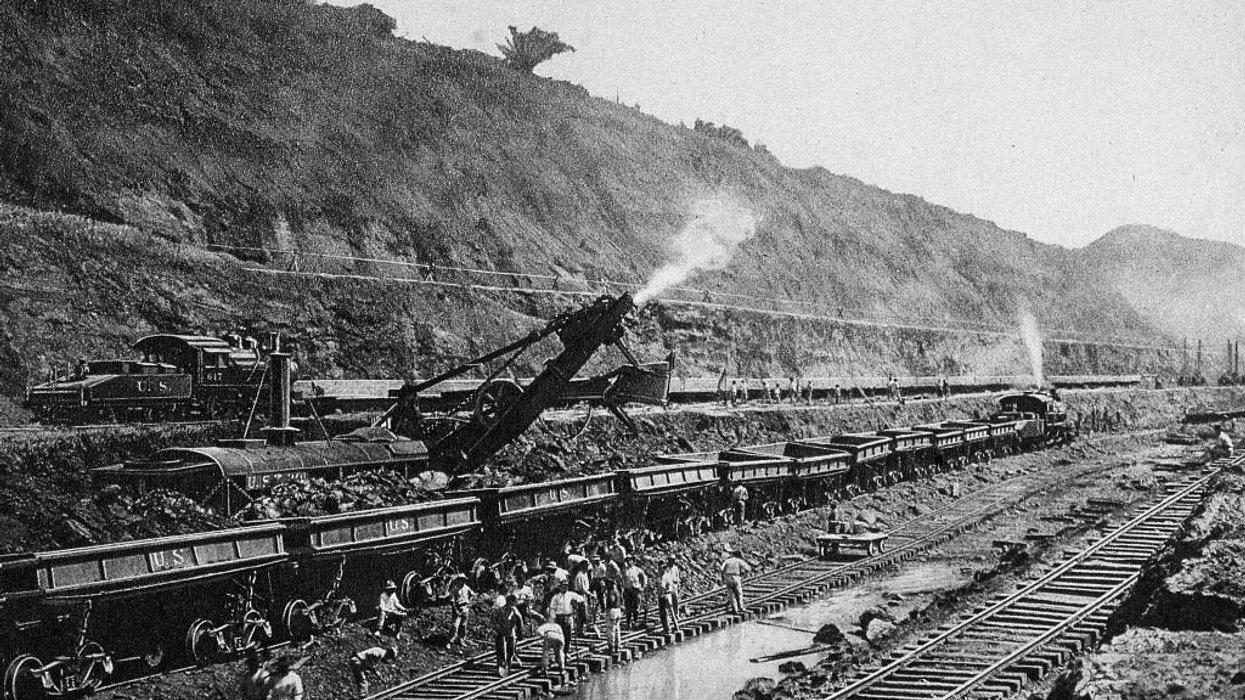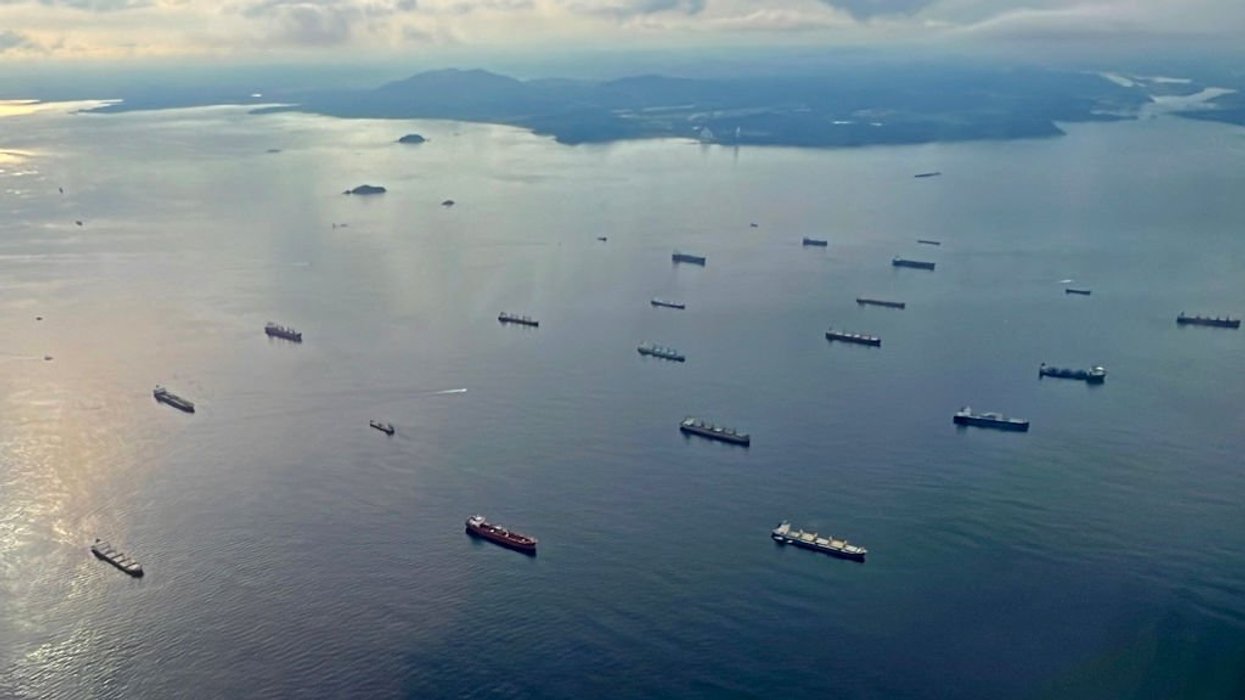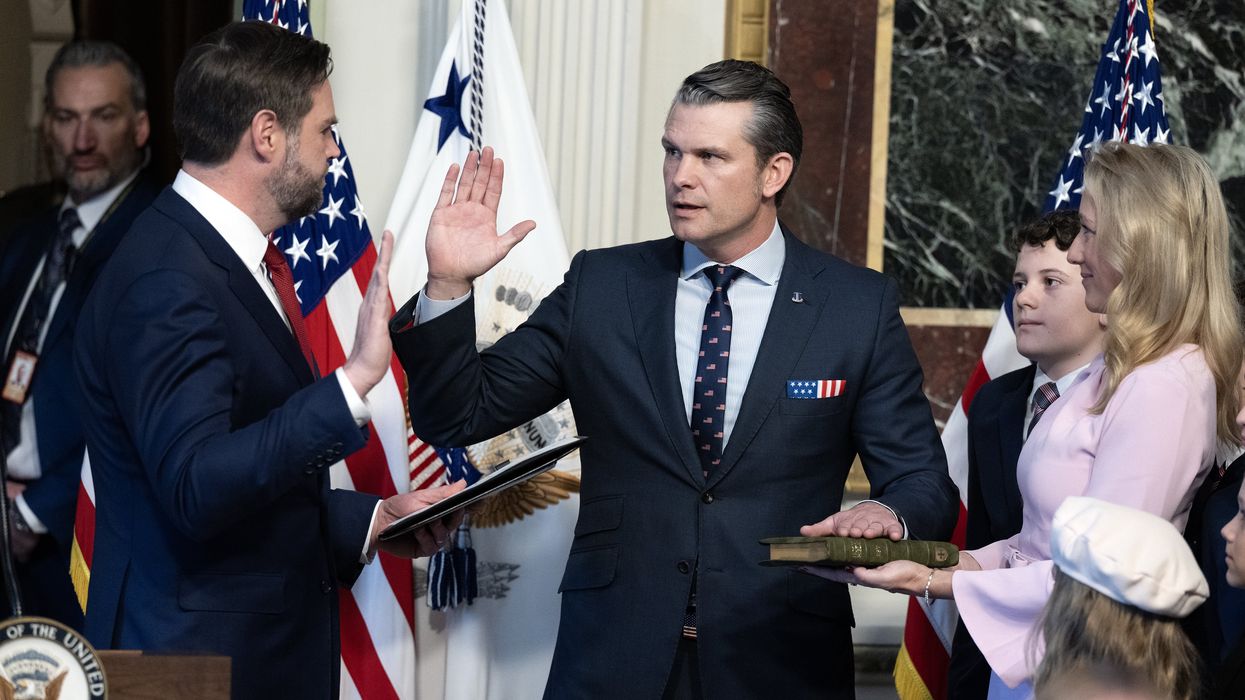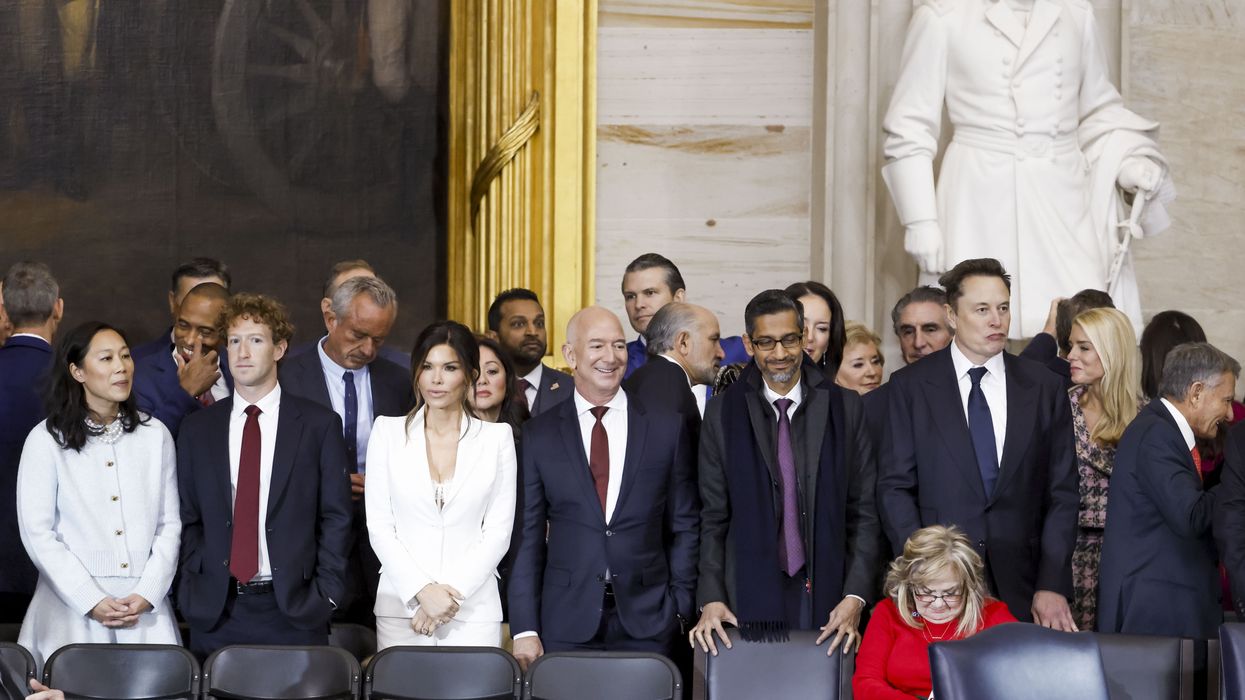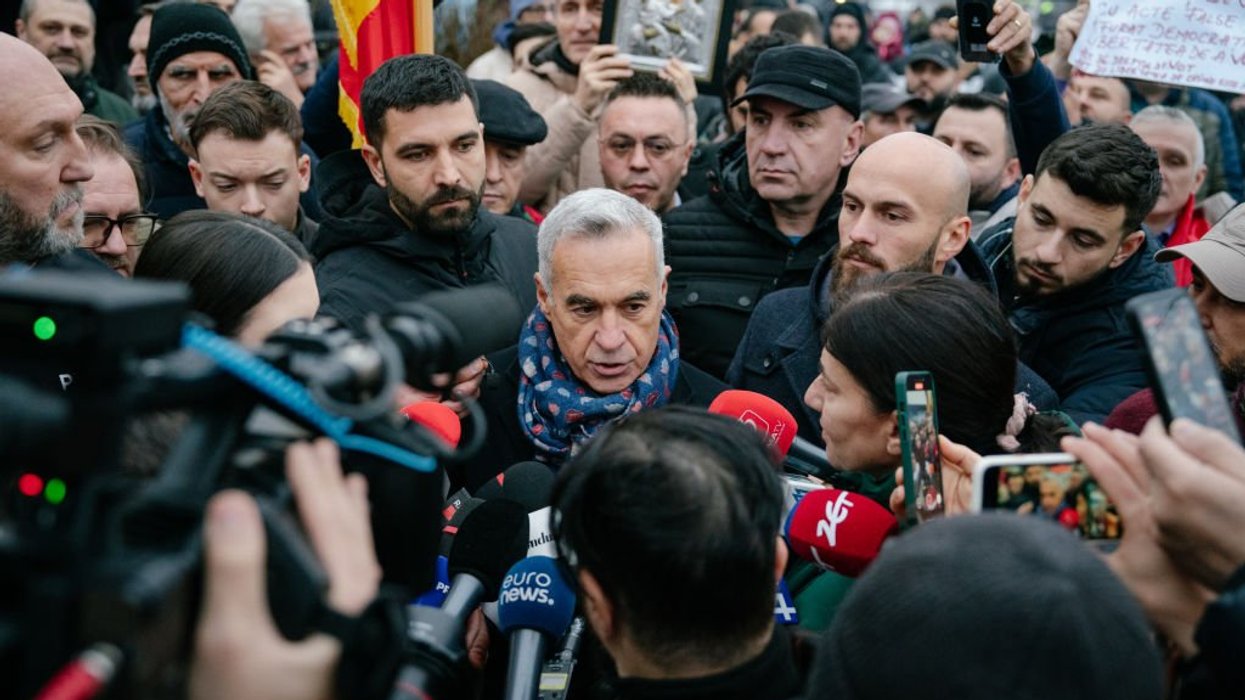GLENN: There was a Revolutionary War, the War of 1812. The Civil War. World War I and World War II. The Korean War. Vietnam War. The Wars in Iraq, Afghanistan. Desert Storm. But the longest-running war in the history of this planet is the War on Women.
I mean, if we're to believe the media and the left. And it's being waged exclusively by people like you, the right.
Some, including a number of women, are not even aware that there is a Republican War on Women. Actress Lisa Kudrow, for example.
VOICE: Do you feel that the Republican War on Women is still an important issue to voters?
VOICE: The Republican War on Women?
VOICE: That's what it says. Do you feel that the Republican War on Women is still an important issue to voters?
VOICE: There's a Republican War on Women?
VOICE: Yeah.
GLENN: The answer, Lisa, is no. There is not a Republican War on Women. So bless you, that even an actress in the leftist world of Hollywood hysteria, she was so very unaware of this nonsensical, non-issue. Yet, Bill Maher attempts to explain the concept to her.
VOICE: Well, you know, I think he's referring back to -- now, this is something the Republicans did improve upon, I must say. Back in 2010, they were the legitimate rape people.
VOICE: Oh, well.
VOICE: They could not stop talking about ladies' private parts.
GLENN: Consider that quote for just a second: Back in 2010, they were the legitimate rape people? Being legitimate rape people would certainly seem to imply that you've legitimately actually raped someone, wouldn't it?
Instead, Maher alleges that what made them legitimate rape people was that they could not stop talking about ladies' private parts. First of all, call me crazy, but I consider talking a separate and distinct issue from actually raping. In reality, what took place in 2010 was that two little known Republicans clumsily spoke about issues related to rape. And that was the sum total of Republicans being legitimate rape people.
But it's rhetoric like that that has created the hysteria surrounding this so-called War on Women. So nonsensical is this issue, that during the 2012 Republican primary debates, ABC News' George Stephanopoulos directed this bizarre question to Mitt Romney.
VOICE: Governor Romney, do you believe that states have the right to ban contraception, or is that trumped by a constitutional right to privacy?
VOICE: George, this is an unusual topic that you're raising. States have a right to ban contraception -- I can't imagine a state banning contraception. I can't imagine the circumstances where a state would want to do so. And if I were a governor of a state or a legislator of a state, I would totally and completely oppose any effort to ban contraception. So you're asking, given the fact that there's no state that wants to do so -- and I don't know of any candidate that wants to do so, you're asking, could it constitutionally be done? I'm going to ask for a constitutionalist here.
(laughter)
(applauding)
VOICE: I'm sure --
VOICE: Okay. Come on back.
VOICE: Do you believe that states have that right or not?
VOICE: George, I don't know whether the state has the right to ban contraception. No state wants to. I mean, the idea of you putting forward things that states might want to do, that no state wants to do and ask whether they can do it or not is kind of a silly thing, I think.
GLENN: All of this is not to say that there's never been issues concerning women's rights. Women have over time had cause for concern. Of course, we all know that. There was a time in this country when women couldn't even vote. However, that wasn't a Republican issue. That was a societal issue.
Commonly referred to as women's suffrage. The fight for women's right to vote began around 1830. It really heated up in the late 1800s and early 1900s. And the effort culminated in the passage of the 19th Amendment to the Constitution, in 1920. Tennessee was the last state needed to ratify the amendment, and it passed there by a single vote. The United States was one of the very first nations on the planet to recognize the right of women to vote.
As early as 1718 in the US, in Pennsylvania, married women were allowed to own and manage propagate in their own name during the incapacity of their own spouse. But it was a start. It may surprise some to know that in 1840, the republic of Texas allowed married women to own property in their own name. Period. The same thing applied in Maine and Maryland, with the provision that they couldn't control the land they owned.
All of which sounds ridiculous to us today, but 180 years ago, these were huge steps. Most of the rights obtained by women in the 1800s were obtained in the United States. By 1855, the University of Iowa became co-ed. Elsewhere in the world, these things were unheard of. When referring to things like abortion, progressives like to claim that since the Supreme Court ruled on the issue, it settled law, thus ending the debate for all time.
However, 100 years before abortion was settled law, the issue of a woman's right to vote also became settled law with the Supreme Court, ruling in 1874, that women had no right to vote.
In Missouri, a woman named Virginia Minor decided that it was definitely time for her and her fellow women to vote. She sued for the right. And the case went all the way to the Supreme Court. The Supreme Court decided in Minor Versus Happersett, that Missouri law limiting the right to vote to male citizens is constitutional.
The court rejected the claim by Minor that state law deprives her of one of the privileges or immunities of citizenship in violation of the 14th Amendment. Amazingly, the court ruled that while women are people under the 14th Amendment, they are in a special category of nonvoting people. And states may grant or deny them the right to vote. So, really, let's stop with the Supreme Court settled law.
Since 1920, the front lines of this war have often involved contraception and abortion. Supposedly fighting for the life of an unborn baby is exactly denying women their reproductive rights. When, in fact, the protection of the life inside the womb is actually ensuring the completion of that reproductive right.
In addition, it is safe to assume that just over half of the lives saved by not aborting babies would one day grow up to be women.
In 2012, Georgetown University law student Sandra Fluke testified to Congress about the hardships faced by female students over contraception.
VOICE: Without insurance coverage, contraception, as you know, can cost a woman over $3,000 during law school. For a lot of students who, like me, are on public interest scholarships, that's practically an entire summer's salary. Forty percent of the female students at Georgetown Law reported to us that they struggled financially as a result of this policy. One told us of how embarrassed and just powerless she felt, when she was standing at the pharmacy counter and learned for the first time the contraception was not covered on her insurance. And she had to turn and walk away because she couldn't afford that prescription. Women like her have no choice, but to go without contraception. Just last week, a married female student told me that she had to stop using contraception because she and her husband just couldn't fit it into her budget anymore. Women employed in low-wage jobs without contraceptive coverage faced this same choice.
GLENN: It cost $3,000 for birth control while attending law school?
I have to be frank with you, that's either an awful lot of sex, or you're buying your birth control devices at Tiffany's. First of all, to believe that the United States government should have any role whatsoever in assisting Americans to have sexual relationships is preposterous. It's not just unconstitutional, it's unthinkable. And second, even without any government involvement or insurance company contributions, birth control can be obtained incredibly cheaply, and in many cases, absolutely free.
Over the years, the War on Women has become a charged political flash point.
VOICE: Imagining paying 20 percent more for a cup of coffee just because you're a woman.
So why does Congress think it's okay that women get paid 20 percent less than a man for doing the same job? I'll fight for pay equity, to protect Planned Parenthood, choice for women, and expand paid and family leave.
Now, some politicians will belittle this as a woman's agenda, more proof that we just need more women in Congress. I'm Kathleen Matthews, and I approve this message.
GLENN: The fact that women earn 79 cents for every dollar that a man makes is continually cited. But even the Washington Post has attempted to dispel this falsehood. They've written about this every year since 2012 and most recently given the claim the dreaded two Pinocchios. There's a multitude of factors to consider, one of them is that the average man has more experience in the workplace than the average woman. And experience is one factor that plays a big role in determining pay. The Washington Post also notes that women tend to leave the work force for periods to raise children, to seek jobs that may have more flexible hours, but lower pay, and choose careers that tend to have lower pay.
By the way, BLS data shows that women who have never married have virtually no wage gap.
In 2011, economists at the Federal Reserve Bank of St. Louis noted that women may prefer to accept jobs with lower wages, but greater benefits, more flexible parental leave, for instance. Excluding such fringe benefits from the calculation would exaggerate the wage disparity.
In 2013, in an article from The Daily Beast, citing a Georgetown University survey on economic value of different college majors, it showed that nine out of the ten most remunerative such as petroleum and aerospace engineering were dominated by men. While nine of the ten least paying majors, such as social work and early childhood education were dominated by women. Again, when comparing similar education, experience, skill level, women earn about the same as men. And in some industries, slightly more.

